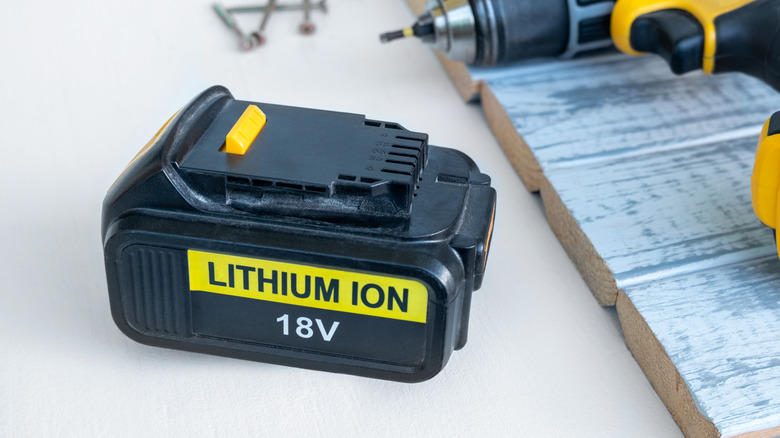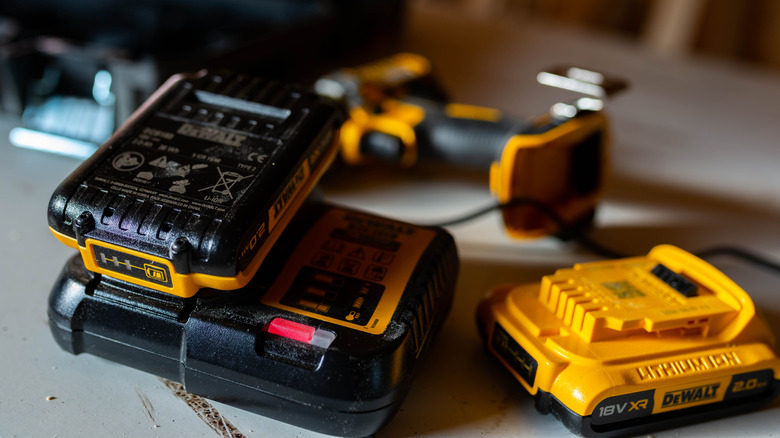What's The Safest Way To Store Lithium-Ion Tool Batteries To Prevent Fires?
Lithium-ion tool batteries are incredibly efficient and can power a variety of tools for your everyday and professional needs. But they also have big problems and disadvantages, and can be dangerous if not handled properly, especially when it comes to storage. Battery-related fires are very real, and it's more important than ever to understand how to keep your tool batteries and surroundings safe.
Lithium-Ion tool batteries should be stored in a cool, dry place. You should keep them out of sunlight to ensure they don't heat up, and this includes when you're charging the batteries as well. Charging should take place in safe areas, away from materials that can burn easily, and as soon as the battery is ready, charging should stop.
The reason Lithium-Ion batteries should be handled with care has to do with their small size relative to the tremendous amount of energy they store. For example, a regular lead-acid battery has an energy density of 30 to 50 watt hours per kilogram, while a Lithium-Ion battery can range anywhere from 50 to 260 watt hours per kilogram. If damaged, a Lithium-Ion battery storing that much energy can not only create a flammable situation, toxic gases can be released as well.
A Lithium-Ion battery fire should be addressed immediately
Everyone tends to make mistakes with Lithium-Ion batteries, but if you're facing a fire in your home due to one, the first course of action is to get everyone out of harm's way and contact the fire department. If you catch the fire before it does any damage and want to stop it, you can do so with a Class D fire extinguisher, which is specially designed for metal. Once the fire is out, you still need to be careful and let everything cool down, as the battery can actually reignite.
However, if you don't have the right fire extinguisher, you can actually use water to put out the fire. While there's some confusion over this method, the fact is that even trained firefighters can douse a Lithium-Ion battery fire with water as well. The key difference is that a regular Lithium battery contains pure Lithium, which should never interact with water. But a Lithium-Ion battery is comprised of a Lithium salt electrolyte, which does not react to water.
Whether it's you or the fire department, the most important factor is a timely response. The quicker a Lithium-Ion battery fire is addressed and extinguished, the better.

